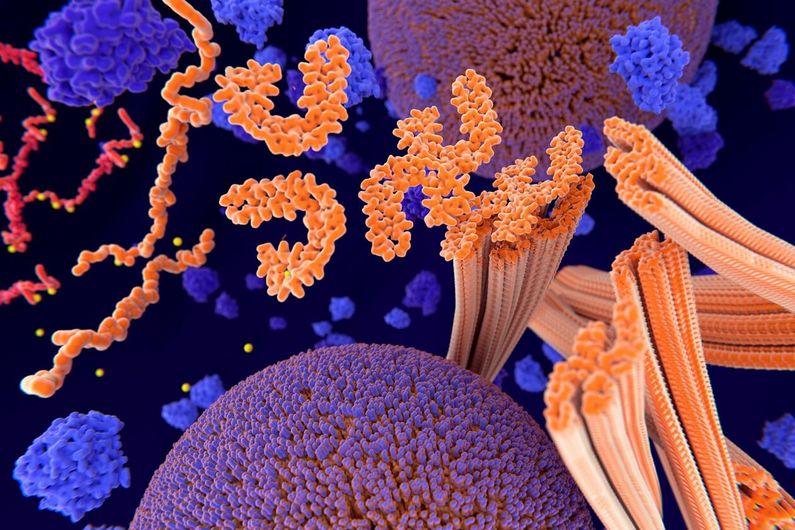Unlocking the mysteries of tauopathies: a protein that gives hope
- Salle de presse
10/20/2022
- UdeMNouvelles
A protein called ‘numb’ acts as a regulator of intracellular tau levels – and could someday be used to treat neurogenerative diseases, an UdeM-IRCM study finds.
A mechanism has been found that controls cellular levels of tau, a protein whose abnormal accumulation is at the root of tauopathies, a class of devastating neurodegenerative diseases.
The discovery was made in the laboratory of Université de Montréal medical professor Michel Cayouette, director of cellular neurobiology research at the Montreal Clinical Research Institute (IRCM).
Published today in Science Advances, the findings show that a protein called ‘numb’ acts as a regulator of intracellular tau levels, identifying numb as a potential therapeutic agent for tauopathies.
Toxic to neurons
Tauopathies are a large family of neurodegenerative diseases, including but not limited to Alzheimer's disease. These diseases have elevated intracellular levels of tau, which eventually becomes toxic to neurons and leads to their degeneration. Understanding the mechanisms by which tau levels are regulated is therefore very important to develop effective therapeutic strategies against these devastating diseases.
With colleagues in the IRCM’s cellular neurobiology lab, Marine Lacomme, an associate researcher and first author of the new study, demonstrated that inactivation of numb in retinal neurons and spinal-cord motor neurons accelerates disease progression and neuronal loss. Numb thus acts as a negative regulator of intracellular tau levels.
These findings led the IRCM team to wonder if, conversely, overexpression of numb could decrease tau levels and act beneficially to slow neuron loss.
Dramatic results in mice
In line with this hypothesis, the scientists observed that overexpression of a specific form of the numb protein called Numb-72 decreased tau levels and slowed down the death of retinal neurons in animal models of tauopathy.
The results were dramatic: mice treated with Numb-72 performed better in a visual test than untreated mice, showing not only a slowing of neuron loss, but also an improvement in their function.
Although more work is needed to take this discovery further, including testing its potential to slow the degeneration of human neurons, the researchers hope that Numb-72 may eventually become a therapeutic factor for the treatment of tauopathies.
The IRCM team’s work is funded by the Alzheimer Society of Canada, the Canadian Institutes of Health Research, and the IRCM Foundation.
Media contact
-
Florence Meney
IRCM
Tel: 514-987-5500, poste 5535













